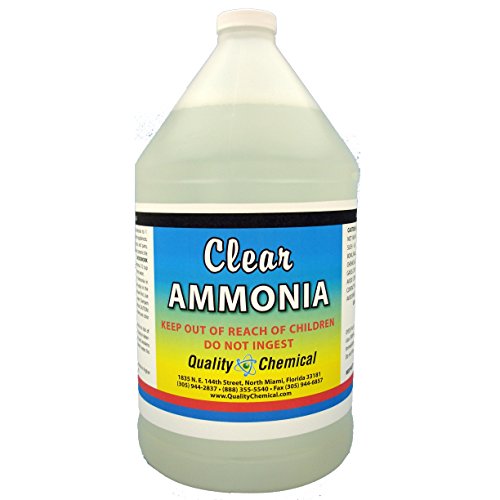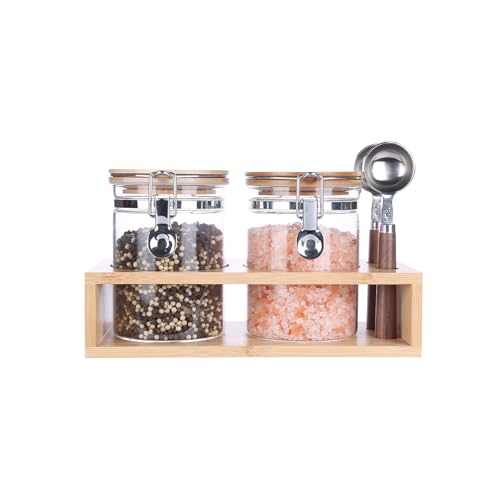

Urine is a bodily fluid that is produced by the kidneys and excreted through the urinary system. It is primarily composed of water, but also contains various waste products and toxins that the body needs to eliminate. While urine is typically disposed of after it is excreted, some people may wonder whether it can be stored in the refrigerator for any reason.
The short answer is no, storing urine in the refrigerator is not recommended or necessary. Urine is a waste product and can contain bacteria and other microorganisms that can multiply rapidly in a moist and cool environment like the refrigerator. Storing urine in the refrigerator can increase the risk of contamination and the growth of harmful bacteria, which can pose health risks if ingested or come into contact with other foods.
Furthermore, urine can develop a strong odor when stored, which can be unpleasant and difficult to remove from the refrigerator. It is also important to note that the odor of urine can sometimes be a sign of an underlying health condition, so it is best to consult a healthcare professional if you notice any changes in the smell or color of your urine.
If you need to collect a urine sample for medical purposes, it is recommended to follow the instructions provided by your healthcare provider or laboratory. They will usually provide a clean container and specific guidelines on how to collect and store the sample properly to ensure accurate results. Proper collection and handling of urine samples are essential to prevent contamination and ensure the reliability of the test results.
In conclusion, while the idea of storing urine in the refrigerator may seem practical or convenient, it is best to avoid doing so. The risks of contamination and the growth of harmful bacteria outweigh any perceived benefits. If you have any concerns or questions about urine storage or collection, it is always advisable to consult with a healthcare professional for guidance.
Can Urine Be Stored?
Storing urine is a common practice in some medical and scientific settings. The ability to store urine can be useful for a variety of purposes, including diagnostic testing, research, and monitoring of certain health conditions.
Why is urine stored?
There are several reasons why urine may need to be stored:
- Diagnostic testing: Urine samples are often stored to allow for later analysis and testing. This can help healthcare professionals diagnose various conditions, such as urinary tract infections, kidney diseases, and diabetes.
- Research: Urine samples are valuable for scientific research. They can be used to study the composition of urine, analyze metabolites, or investigate the presence of certain substances or markers. Storing urine allows researchers to gather data over time or compare samples from different individuals.
- Drug testing: Urine samples are commonly stored for drug testing purposes. In settings such as workplace or sports drug testing, urine samples may be stored to ensure accuracy and provide a means for further analysis if necessary.
How is urine stored?
When urine is stored for any purpose, proper handling and storage procedures must be followed to maintain its integrity. Some common methods of urine storage include:
- Refrigeration: Refrigeration at a temperature between 2-8°C is a common method for short-term urine storage. This helps to prevent the growth of bacteria and maintain the stability of certain analytes.
- Freezing: Freezing urine at temperatures below 0°C can allow for long-term storage. This method is often used when samples need to be stored for extended periods, such as in research studies.
- Preservatives: Certain preservatives can be added to urine samples to inhibit bacterial growth, prevent degradation of analytes, or maintain stability. This can be particularly useful when transportation or immediate analysis of the sample is not possible.
It is important to note that the storage requirements for urine can vary depending on the specific purpose and testing method. Healthcare providers, researchers, and laboratory professionals should follow established guidelines and protocols to ensure accurate and reliable results.
In conclusion, urine can be stored for various reasons, including diagnostic testing, research, and drug testing. Proper storage methods, such as refrigeration or freezing, must be followed to maintain sample integrity and ensure accurate results.
Why Store Urine?
Storing urine may seem like an odd idea to some people, but there can be various reasons why someone might choose to do so. Here are a few common reasons why individuals may consider storing urine:
|
Medical Testing |
One of the most common reasons to store urine is for medical testing purposes. Urine tests are frequently used to diagnose and monitor various medical conditions. By storing urine samples, individuals can provide them for testing at a later time, allowing healthcare professionals to analyze the samples and provide accurate diagnoses. |
|
Privacy and Confidentiality |
Some individuals may choose to store their urine for privacy and confidentiality reasons. They may not feel comfortable using public restrooms or may have concerns about potential breaches of privacy. By storing their urine at home, they can have a private and secure place to maintain their samples until they can be properly disposed of. |
|
Drug Testing |
Another common reason for urine storage is for drug testing. Employers or organizations may require individuals to undergo drug tests as part of their employment or participation requirements. By storing urine samples, individuals can provide them as needed, ensuring that the samples are within the required time frame for accurate testing. |
|
Research and Study |
Researchers and scientists may also store urine for their studies and experiments. Urine contains valuable information about the body’s functioning and can provide insights into various health-related aspects. By storing urine samples, researchers can conduct thorough analyses and contribute to further advancements in medical knowledge. |
Overall, while storing urine may not be a common practice for most people, there are valid reasons why someone might choose to do so. Whether it’s for medical testing, privacy concerns, drug testing, or research purposes, the ability to store urine can serve important functions in various situations.
Proper Storage Conditions
When it comes to storing urine, it is important to follow proper storage conditions to ensure its integrity and prevent any potential contamination.
Temperature
The temperature at which urine is stored can affect its composition and potential for bacterial growth. It is recommended to store urine in a cool environment, preferably between 2 to 8 degrees Celsius (35.6 to 46.4 degrees Fahrenheit). The refrigerator provides an ideal temperature range for maintaining the quality of stored urine.
Container
The container used for storing urine should be clean, sterile, and tightly sealed to prevent any leakage or contamination. It is advisable to use a container specifically designed for urine collection, such as a sterile plastic container with a screw-on lid. These containers are readily available at pharmacies and medical supply stores.
| Storage Conditions: | Recommended |
|---|---|
| Temperature: | 2 to 8 degrees Celsius (35.6 to 46.4 degrees Fahrenheit) |
| Container: | Clean, sterile, and tightly sealed |
Additionally, it is important to label the container with the date and time of collection to track the storage duration. This will help in maintaining a record of the stored urine and ensuring that it is used within a reasonable timeframe.
By following these proper storage conditions, you can ensure the integrity of the stored urine and maintain its suitability for various applications, such as medical tests or research purposes.
Possible Risks of Storing Urine
While storing urine in the refrigerator may seem like a convenient solution for certain situations, it is important to be aware of the potential risks involved. Here are some possible risks to consider:
1. Bacterial growth:
Urine is a bodily fluid that can contain various bacteria. Storing urine in the refrigerator for an extended period of time can provide an environment for bacteria to grow and multiply, potentially increasing the risk of contamination and spreading of infections.
2. Odor and hygiene:
Urine has a strong and distinct smell that can become more pronounced when stored over time. This can lead to unpleasant odors in the refrigerator and compromise overall hygiene. It is important to take proper measures to eliminate odors and maintain cleanliness.
It is crucial to handle urine with care and adhere to proper hygiene practices when storing or handling it in any form. Here are some tips to keep in mind:
- Use clean and sterilized containers: Ensure that the containers used for storing urine are clean and sterilized to minimize the risk of contamination.
- Label and date: Clearly label each container with the date and time of collection to keep track of how long it has been stored.
- Keep refrigeration time to a minimum: If storing urine is necessary for medical or diagnostic purposes, keep the refrigeration time as short as possible to reduce the risk of bacterial growth.
- Dispose of properly: Once the stored urine is no longer needed, it should be disposed of properly according to local regulations and guidelines.
In conclusion, while storing urine in the refrigerator may have its uses, it is important to consider the possible risks and take appropriate precautions to ensure safety and hygiene.
Alternative Uses for Stored Urine
While storing urine in the refrigerator may not be a common practice, there are alternative uses for stored urine that can provide various benefits. Here are a few examples:
1. Composting: Urine can be used as a valuable addition to compost. It is rich in nitrogen, phosphorous, and potassium, which are essential nutrients for plants. Dilute stored urine with water and use it as a fertilizer for your garden or potted plants. This natural alternative can help improve soil fertility and promote healthy plant growth.
2. Cleaning: Urine contains ammonia, which can be used as an effective cleaning agent. Dilute stored urine with water and use it to clean bathroom floors, tiles, or even stains on clothing. The ammonia in urine helps break down organic matter and removes stubborn stains.
3. Pest deterrent: The strong odor of stored urine can act as a natural deterrent for certain pests. Use it around your garden or outdoor areas to keep away animals like rabbits, deer, or raccoons. By placing small containers of stored urine in strategic locations, you may be able to protect your plants and property from unwanted visitors.
4. Medicinal purposes: While it may seem unconventional, some alternative medicine practices use urine for therapeutic purposes. Urine therapy involves the application or ingestion of urine to promote healing and well-being. Before considering this option, it is crucial to consult with a healthcare professional for advice and guidance.
Note: It is essential to handle stored urine with caution and practice proper hygiene to prevent any potential health risks. Always ensure proper storage and avoid any contact with open wounds or mucous membranes.
In conclusion, while storing urine in the refrigerator may not be advisable, alternative uses for stored urine can provide benefits such as fertilizing plants, cleaning, pest deterrent, and possible medicinal purposes. However, it is always recommended to research further and consult professionals before attempting any unconventional practices.
FAQ
Can you store urine in the refrigerator?
Yes, it is possible to store urine in the refrigerator, but it is not recommended. Urine can spoil quickly and may emit a strong odor, making it unpleasant to keep in the refrigerator.
Is it safe to store urine in the refrigerator for medical tests?
Yes, storing urine in the refrigerator for a short period of time, such as a few hours, can be safe for certain medical tests. However, it is important to follow specific guidelines provided by the healthcare professional or laboratory conducting the test.








